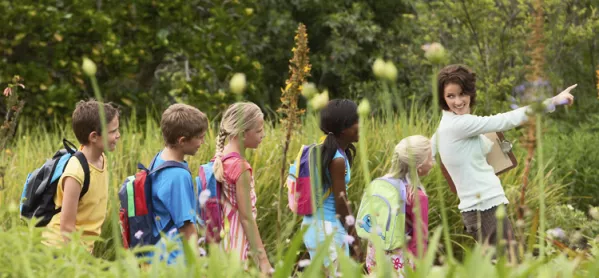Knowledge. Educators are obsessed with it. Compared to learning, that is. We want to create knowledge, apply knowledge, even “mobilise” knowledge, by moving it around. I’m as guilty as the next person when it comes to this. After all, I wrote a book once called Teaching In The Knowledge Society. But has all this knowledge has become overrated?
Last year, I undertook some research in the north of Canada, in a small town called Dryden. I was in a class of 7- or 8-year-olds. Having come straight from the school board offices, I was, to be honest, a bit overdressed. A small group of children just to the side of me looked me over and began to speculate about who this man in a suit might be. “Is he the new principal?” one of them wondered. “I think he’s the President,” a second one said. “No, I know who he is,” the third one exclaimed, “He’s the King of Dryden.”
After this all-too-brief coronation, I then had to break the disappointing news that I was not royalty, but merely a professor from a university. Now they had the knowledge. But much more interesting and engaging for them had been that magical moment before they had the knowledge - the wonderful moment of ignorance.
We should cherish this kind of ignorance. It’s not the ignorance that refutes knowledge and expertise. It’s not prejudice or stupidity. It is simply the absence of knowing that invites and anticipates the knowledge that is to come. One of life’s most blissful states is the space, moment or portal that separates ignorance from knowledge, that distinguishes not knowing from knowing, curiosity from certainty.
Through centuries of scholarship and in a time before Google, it’s always been the moment of wonder and wondering, of mysteries and solutions and then more mysteries beyond them, that has been most special in the process of educating. The crossword clue or mathematical equation you are trying to solve, the country you have not yet visited, the blind date you are waiting for - these are life’s delightful moments of wondering and not knowing that captivate us and gain our complete attention. They are our most teachable moments.
This is why teaching is so important. Teaching isn’t about the delivery of knowledge and information. Algorithms can give us that. Teaching is about embracing, exploring and exploiting the glorious moment of ignorance that immediately precedes knowledge and then succeeds it again soon after. China’s great philosopher and teacher Confucius said, “Real knowledge is to know the extent of one’s ignorance.” The marvel of teaching is in how it inspires and intrigues people to seek out and take on new problems, explorations, and challenges.
Teachers need to have their moments of ignorance, too. A thousand miles south of Dryden, close to the city of Toronto, 14 teachers gather together to discuss a “student of wonder” who struggles with their learning. A decade ago, when testing was all the rage, these students were known as “marker” students. When they failed to meet the mark in terms of measured proficiency, teachers had to devise strategies together to get their scores up quickly. But the focus now is more on the learning than the testing. Teachers “wonder” together why a particular student struggles. Then they pool all their ideas and insights, their own bits of imperfect and incomplete knowledge, to try and solve the mystery of how to help the child learn. Admitting that, at first, they don’t really know what the issue is, is part of their professionalism. Inquiring together and acting upon it, is the essence of their collaborative professionalism.
Education isn’t about delivering facts, or delivering anything, for that matter. Nor is it about instant access to online information. Education is about the joy of not knowing, and of what to do about that. It is about understanding that, in the company of a great teacher, ignorance, of a sort, can truly be bliss.
Andy Hargreaves is the Thomas More Brennan Chair at the Lynch School of Education, Boston College
This article was written for imaginationmatters.org and has been shared exclusively with Tes. Imagination Matters is a campaign powered by the Institute of Imagination that highlights the importance of imagination in everyday life.
Want to keep up with the latest education news and opinion? Follow Tes on Twitter and Instagram, and like Tes on Facebook.





